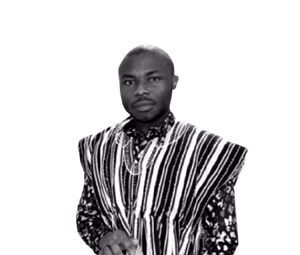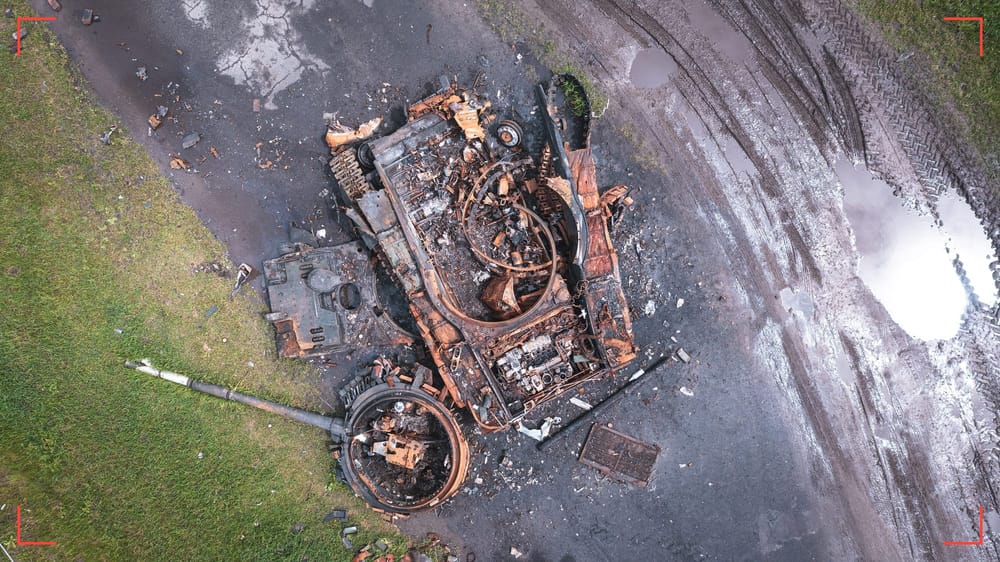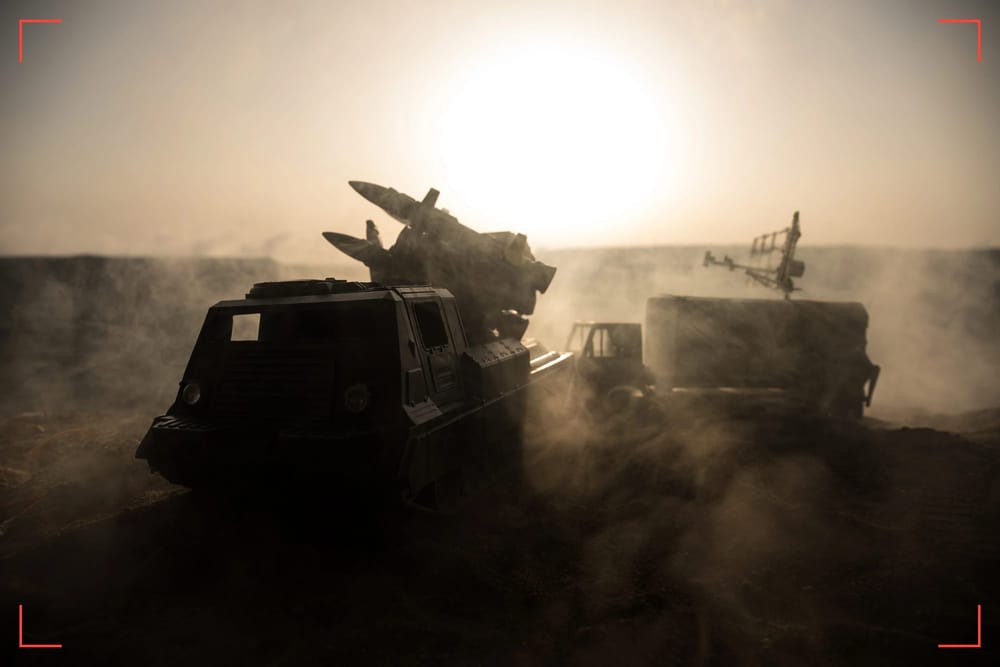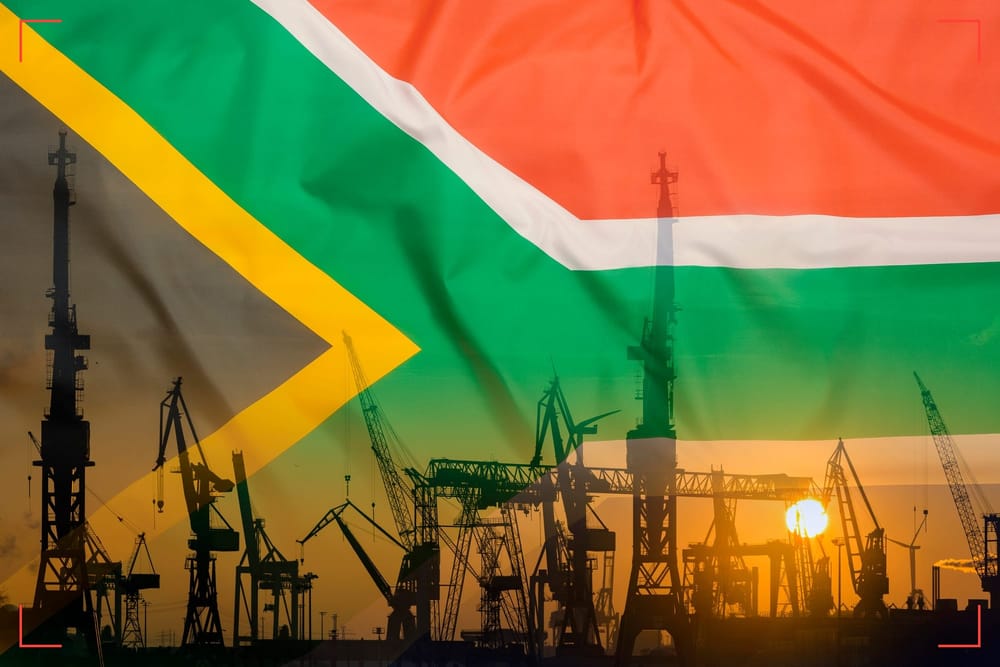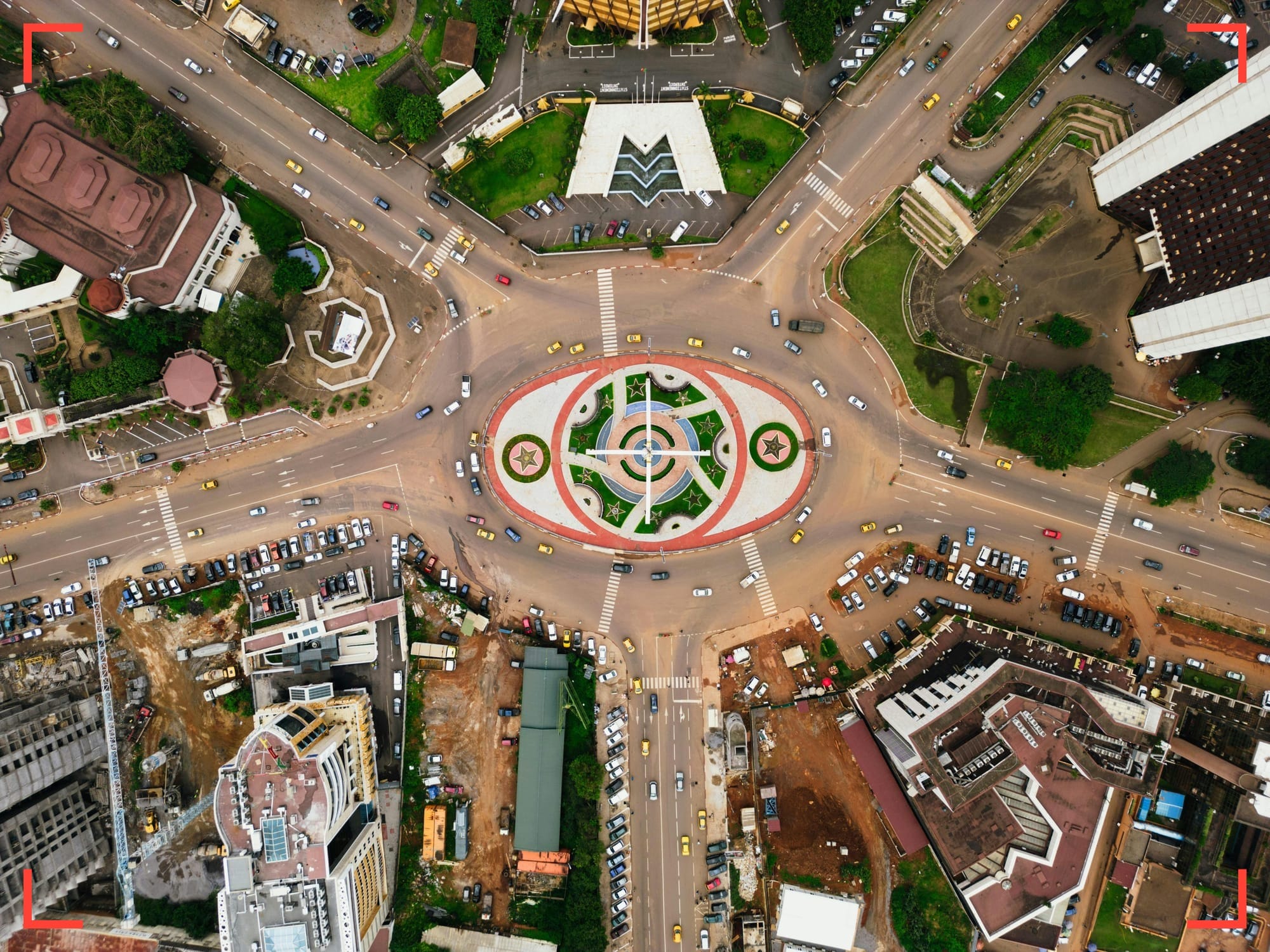
Report Details
Initial Publish Date
Last Updated: 01 NOV 2025
Report Focus Location: Cameroon
Authors: CI, EA
Contributors: GSAT
GSAT Lead: MF
RileySENTINEL provides timely intelligence and in-depth analysis for complex environments. Our global team blends international reach with local expertise, offering unique insights to navigate challenging operations. For custom insights or urgent consultations, contact us here.
Key Findings
- Voter Turnout: Despite an overall increase in the number of registered voters from 7.2 million voters in 2018 to 8.2 million in 2025, voter turnout dropped from the average 67% observed in previous elections to 58%.
- Contested legitimacy: Issa Tchiroma Bakary, the Project C coalition, and several other opposition presidential candidates have outrightly refused to recognise Paul Biya’s victory, while less than 10 foreign governments have formally congratulated President Biya on his reelection.
- Electoral Controversy: President Biya’s landslide victory in the conflict-affected Anglophone Northwest and Southwest regions have raised serious concerns about electoral malpractice. President Biya scored 86% and 68%, respectively in these two regions, recording more than 400,000 votes according to official results from the Constitutional Council.
- Growing State Repression: The government through the Ministry of Territorial Administration, regional, and local administrative officials, notably governors, senior divisional officers, and divisional officers have banned all forms of protests. Heavy crackdown on protesters, including the firing of live bullets and water cannons, while key opposition figures under the Project C coalition have been arbitrarily detained.
- International Response: The United Nations, European Union, African Union, Human Rights Watch, Amnesty International, as well as several European diplomatic missions and Canada, have all called for a restraint on the government crackdown on protesters.
- Ethnic Tensions: Rising ethnic tensions fuelled by pro and anti-Biya social media influencers continue to rise. Comments on pro-Biya social media influencers, notably on Facebook often contain hate words such as “talibans”, while “Amba, les Bulu’s, les Ekangs” is frequently used by anti-Biya influencers.
- Rising Sympathy for Targeted Killings of Pro-Biya Sympathizers: According to the General Manager for the state broadcaster, Cameroon Radio and Television (CRTV), CRTV personnel are the target of public violence. In the Northwest region, a local member of parliament for the incumbent CPDM party, and a regional delegate were brutally assassinated by Anglophone separatists.
- Waning Democratic Preference: Although 50% of Cameroonians still prefer democracy as the best form of government, over 66% support a military coup d’etat. This suggests a growing popularity for coups in Sub-Saharan Africa, which has seen a resurgence in coup activities within the last 5 years.
- Consensus: Lack of consensus within the leading opposition parties makes it easier for the government to maintain control. This is in addition to the Anglophone - Francophone divide.
- Instability and regional implications: In addition to the country’s fight against the Boko Haram insurgency in the Far North region, and Anglophone separatist fighters in the Northwest and Southwest regions, rising post-electoral violence across major cities in the West, Littoral, North, and Adamaoua regions might impact the regional peace and security within the Lake Chad Basin.
Summary
The presidential elections held in Cameroon on October 12, 2025, and officially confirmed by the Constitutional Council on October 27, marked a worrying turn in the country's political course. The announcement of Paul Biya's victory extended his tenure to an eighth consecutive term, reaffirming his status as the world's oldest head of state and one of the longest-serving leaders globally. In power since 1982, Biya has ruled Cameroon for over 43 years, a tenure that has profoundly shaped the nation's political and institutional landscape.
His confirmation of victory, however, has sparked widespread unrest and mass protests across the country, as opposition parties and civil society groups have denounced the election as fraudulent and “stolen.” Demonstrations have erupted in major cities such as Yaoundé, Douala, and Garoua, with reports of violent clashes and repression by security forces.
This situation has plunged the central African nation into a state of heightened instability, raising concerns about its political stability and future governance. The prospect of a 90-year-old president remaining in office until he is nearly 100, coupled with intensifying social unrest, underscores the fragility of Cameroon's democratic institutions and the uncertainty of its political future.
The post-election crisis unfolds against compounding security threats—including the Boko Haram insurgency in the north, humanitarian pressures from Central African refugees in the east, and the Anglophone separatist conflict in the northwest and southwest. These overlapping challenges strain national resources, exacerbate regional marginalization, and complicate operational continuity for humanitarian and development programs. The 15-day delay in confirming results, while technically legal, further eroded public trust and amplified perceptions of manipulation.
This report provides background context on Cameroon's political landscape, analyzes immediate and medium-term risks from the contested election, and assesses potential scenarios shaping the country's trajectory in coming months.
Current Events/Major Issue
On October 12, Cameroonians went to the polls to elect a new president. President Paul Biya, the country’s long-serving president in power since 1982, was seeking reelection for an eight term in office. While the election itself was largely peaceful, post-electoral violence before and after the proclamation of results on October 27, by the Constitutional Council, the sole body responsible for proclaiming elections in Cameroon, has put the country on high security alert. On October 14, 2025, Issa Tchiroma Bakary, the leading opposition candidate and member of the Cameroon National Salvation Front (CNSF) party, autoproclaimed himself the winner of the October 12 presidential election during a live Facebook event. He urged President Biya to concede defeat and accept the will of the people. This was further supported by an official communique from the “Project C” coalition, a coalition of civil society organizations that had endorsed Tchiroma’s candidacy. In response, several members of the incumbent government, notably the Minister of Territorial Administration, strongly criticized Issa Tchiroma’s proclamation as an act of insurrection against the state and promised severe action. This was followed by the heavy militarization of the town of Garoua, where Issa Tchiroma stays, while the local population and Tchiroma’s sympathizers mobilized around his residence to protect him from a possible arrest. However, Tchiroma maintained his position as the winner on several occasions, reiterated calls for President Paul Biya to concede defeat, and urged his supporters to remain on alert. Beyond this, Tchiroma compiled and posted his own results on his Facebook page to support his claim.
A few days before the official proclamation of the results, an article released by the French news outlet, Jeune Afrique, claimed that the Biya government had offered Tchiroma the Prime Ministerial position, which he declined. On October 23, Tchiroma addressed his supporters and called for a nationwide protest on October 26. The government swiftly responded by arresting several key members of Tchiroma’s coalition, banning any form of protest across the national territory. Despite this, protests erupted across multiple cities such as Douala, Baffousam, Garoua, and Maroua on October 26.
Following the official proclamation of the results on October 27, where Paul Biya was declared the winner with 53.66% and Issa Tchiroma the runner-up with 35.19%, violent protests continued across multiple cities on October 27 and 28. Unconfirmed reports indicate that at least 20 protesters were killed by government forces, with dozens detained. The protesters targeted and burnt multiple government infrastructures, including police and gendarmerie stations, local council buildings, and private properties of government officials. Although most of the protests have reduced within the last few days, the situation still remains extremely tense. Issa Tchiroma has called for a three-day ghost town operation from November 3rd to 6th and has promised to fight to reclaim his victory even at the cost of his life.
Background
The 2025 presidential election in Cameroon represents a pivotal moment in the country’s contemporary political landscape, reflecting both entrenched governance patterns and ongoing socio-political tensions. Paul Biya, in power since 1982, was officially re-elected for an eighth consecutive term, consolidating his position as one of the world’s longest-serving authoritarian leaders. His prolonged rule underscores the concentration of political authority in the presidency and the limited space for genuine democratic competition, with stability and regime continuity often prioritized over transparency and pluralism.
Cameroon, home to over 28 million people, is characterized by significant ethnic, linguistic, and regional diversity, with both Anglophone and Francophone populations shaping its political dynamics. The country operates under a presidential system in which, theoretically, executive powers are shared between the president and the prime minister. In practice, however, the president exercises extensive control over the military, judiciary, security services, and regional administrations. Major political parties include the ruling Cameroon People’s Democratic Movement (CPDM) and opposition groups such as the Social Democratic Front (SDF) and the Cameroon Renaissance Movement (MRC).
The 2025 elections registered around 7 million voters, with an estimated turnout of approximately 57%. Official results were confirmed 15 days after voting, an unusually long interval compared to most democratic systems, where results are typically finalized within 48 hours. This extended confirmation period, though legally compliant, fostered perceptions of procedural opacity and uncertainty, raising doubts about the transparency and credibility of the process.
Cameroon’s internal security situation further complicates the post-electoral context. In the north, Boko Haram remains active; in the east, the influx of refugees from the Central African Republic, particularly around the MINAWA camp, adds humanitarian strain. Meanwhile, the ongoing Anglophone separatist insurgency in the northwest and southwest regions continues to challenge national cohesion.
The 2025 elections reveal Cameroon's fragile balance between regime endurance and popular legitimacy. Paul Biya's eighth term reinforces centralized authority with minimal prospects for democratic transition. The 57% turnout masks regional disparities and suppression in Anglophone areas affected by separatist conflict.
The 15-day result delay amplified manipulation suspicions and undermined confidence in ELECAM's independence. Restricted oversight and limited opposition access fueled criticism of electoral legitimacy. The post-election period will likely feature political repression, civil unrest, and conflict escalation. Without reform or dialogue, prolonged instability is probable. International stakeholders require enhanced risk management and adaptive strategies to mitigate impacts on vulnerable populations.
Analysis and Future Outlook
For several decades, Cameroon’s political atmosphere has revolved around one person, President Paul Biya, who has been the country’s president since 1982. While Cameroon, like most other sub-Saharan African countries, operated a one-party system post-independence, multipartyism and liberal pluralism was reintroduced in 1990. However, decades later, it could be argued, and rightly so, that not much has changed in the country’s political landscape. The country ranks low on several democratic indicators. Cameroon ranks 131 out of 180 countries on the World Press Freedom Index (2025), 140th on the Corruption Perception Index, with a score of 26/100, and 134th on the Rule of Law Index. A recent survey by Afrobarometer shows that although 50% of Cameroonians still think that democracy is better than other forms of government, less than 30% of Cameroonians are satisfied with the country’s democracy, while 66.8% are in favor of a military coup. This is a serious problem given that there has been a resurgence in coup activities in Sub-Saharan Africa within the last 5 years. Beyond this, the country operates a highly centralized presidential system of governance, where the president is solely responsible for appointments and dismissals of top-ranking officials, including magistrates, the members of the Constitutional Council, and ELECAM. Apart from this, other institutions, notably the Assembly, are controlled by the president’s Cameroon People’s Democratic Movement (CPDM).
Although Cameroon is an electoral democracy, reports of massive electoral malpractice have characterized past elections. Yet, unlike previous elections, the 2025 presidential election was unique because it was the first time a former government ally, Issa Tchiroma Bakary, challenged President Biya’s regime. Furthermore, out of the 13 candidates retained by the Constitutional Council for the election, Issa Tchiroma was by far arguably the most popular candidate, especially due to his popularity within Cameroon’s youthful population. His perceived commitments to ending the nine-year Anglophone conflict further increased his popularity within the broader Anglophone civil society, including some Anglophone separatist leaders. Although the election was largely peaceful, it was, however, marred by massive electoral malpractices, especially across the Anglophone regions, which were under a separatist-imposed lockdown to stop elections across these regions.
President Paul Biya’s 53% victory in the election has created an unusually tense political and security atmosphere in Cameroon. Unlike in previous elections, Paul Biya’s victory faces serious challenges internally and internationally. Issa Tchiroma, who came second with 34% has refused to concede defeat to Paul and continues to maintain that he is the winner and that he will fight to (re)claim his victory even at the cost of his life. While some opposition candidates, such as Cabral Libi of the National Reconciliation (PCRN) party, have congratulated Biya on the reelection, several others have questioned Biya’s legitimacy and insisted that the elections were highly rigged. In an interview on RFI, renowned Cameroonian author Achile Mbembe said that “to declare what happened in Cameroon as an election is an oxymoron”. Furthermore, the results from the two-English speaking regions have become the subject of serious controversy. Local and international observers and analysts, such as the EU’s former Ambassador to Cameroon and Equatorial Guinea, Philippe Van Damme, former Cameroon Bar Council President and Presidential Candidate, Akere Muna, have argued that President Biya’s landslide victory in these conflict regions is highly impossible. Statements from the UN Secretary-General, the EU, Human Rights Watch, Amnesty International, and several (Western) Diplomatic missions in Cameroon have all condemned the government’s repressive response to post-electoral protests.
The rising political instability in Cameroon as a result of recent presidential elections has potentially dangerous implications for peace and security within Cameroon and beyond. Trends observed from comments on social media, notably on platforms such as Facebook, indicate growing ethno-tribal tensions. Words such as “talibans l’ennemi d’état” on pro-Biya platforms are increasingly attributed to the Bamileke ethnic group in the West region, while on anti-Biya platforms, “ les ekangs, les bulus, les propriétaires du Cameroun” are associated with Paul Biya’s Bulu ethnic group in the South region.
Additionally, most comments on pro-Biya platforms, which could be attributed to members of a particular ethnic group, support the military’s violent crackdown on protesters. Facebook comments with the “Amba”, such as “les Amba ont raison, les Ambas ont bien compris le system,” etc., have become frequent across several anti-Biya platforms, indicating growing dissent and sympathy for an armed rebellion against the government.
It is important to note that “Amba” is a short form for armed Anglophone separatist fighters. The overwhelming support on these platforms following the assassination of a local CPDM member of parliament and a regional delegate in Bamenda by separatist fighters after the elections sets a dangerous precedent. An Official Communique on October 29, signed by the General Manager of Cameroon’s lone state radio and television broadcaster, Cameroon Radio and Television (CRTV), decried calls for targeted killings against CRTV personnel. Contextually, a large majority of the opposition in Cameroon views the CRTV as partisan to the ruling CPDM and President Paul Biya.
Impact and Recommendations
- Degrading Factors
- The runner up and leading opposition candidate, Issa Tchiroma has refused to concede defeat to Biya and has vowed to continue fighting even at the cost of his freedom and life. This has further been inflamed by several other opposition politicians and presidential candidates outright rejecting Paul Biya’s victory as rigged.
- Rising online propaganda from pro-Biya and anti-Biya social media bloggers is creating a tense political atmosphere and the conditions for ethnic nationalism.
- The conduct of certain government ministers, notably, the Territorial Administration Minister, Paul Atanga Nji and the government’s repression tactics threatens to worsen the situation.
- Arson attacks against multiple government infrastructures, police stations, and petrol stations in major towns such as Douala, Garoua, Maroua, and Baffousam. The murder of a member of parliament and regional delegate in the Bamenda by Anglophone separatist fighters.
- Stabilization Factors
- Major international organizations, notably the UN Secretary-General, UNHCR, the European Union, Human Rights Watch, and Amnesty International have raised serious concerns about the government’s crackdown and repressive approach against protesters while calling for restraint and calm.
- Yaounde, the political capital as well as other major cities mostly across the majority Anglophone Northwest and Southwest regions have remained calm.
- Issa Tchiroma Bakary has cautioned his supporters to coordinate themselves peacefully and avoid violent protests.
- Lack of consensus within the leading opposition parties makes it easier for the government to maintain control. This is in addition to the Anglophone - Francophone divide.
RileySENTINEL
Our RileySENTINEL platform delivers comprehensive global, regional, and country-specific situation reporting and analysis. Powered by the Riley Risk team, our Geopolitical & Security Analysis experts provide:
- Timely, on-the-ground intelligence
- In-depth analysis of high-risk environments and events
- Proactive insights to navigate volatile operational contexts
Our globally distributed advisors and analysts combine global reach with regional expertise and local insights, empowering clients with unique perspectives to make informed decisions in challenging environments.
Enhance Your Risk Management Strategy
For deeper insights or enhanced custom reporting tailored to your specific needs, we offer on-demand consultations. An expedited response option is typically available, based on our team and advisor availability.
To explore how our risk advisory services can strengthen your business operations and help you achieve more, schedule a call with the RileySENTINEL team using the service booking link below.
Expert Analysis On-Demand: Request Support
Leverage RileySENTINEL's expert team for deeper analysis and tailored insights:
- On-demand consultations with our global network of advisors
- Custom reports focused on your specific operational contexts
- Proactive risk mitigation strategies for volatile environments
- In-depth analysis of regional stability factors and future outlooks
- Expedited response options for time-sensitive inquiries
Click this link to be redirected to the support request page.
RileySENTINEL: Global Insights. Local Expertise.



